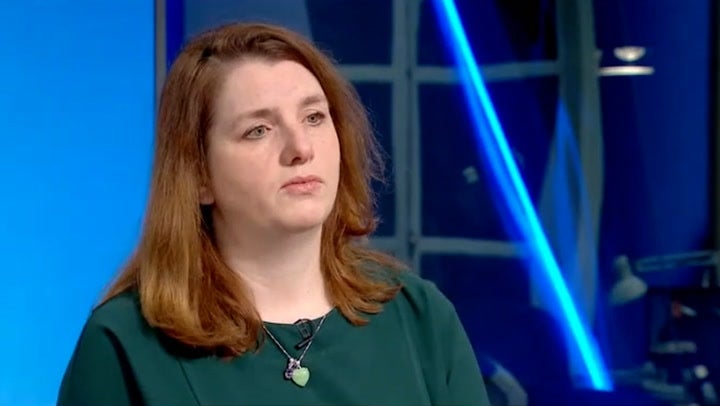Welfare system failing the sick and the taxpayer, says employment minister
A green paper on welfare reform is due next year and is expected to address issues with benefit claims

Your support helps us to tell the story
From reproductive rights to climate change to Big Tech, The Independent is on the ground when the story is developing. Whether it's investigating the financials of Elon Musk's pro-Trump PAC or producing our latest documentary, 'The A Word', which shines a light on the American women fighting for reproductive rights, we know how important it is to parse out the facts from the messaging.
At such a critical moment in US history, we need reporters on the ground. Your donation allows us to keep sending journalists to speak to both sides of the story.
The Independent is trusted by Americans across the entire political spectrum. And unlike many other quality news outlets, we choose not to lock Americans out of our reporting and analysis with paywalls. We believe quality journalism should be available to everyone, paid for by those who can afford it.
Your support makes all the difference.Benefits claimants are increasingly finding that they are financially better off being signed off sick rather than actively seeking employment, employment minister Alison McGovern has claimed.
Ms McGovern told the Lords Economic Affairs Committee that the existing welfare framework is failing both the long-term sick and taxpayers. With the cost of sickness benefits expected to hit £100 billion by 2030, Ms McGovern said: “It’s obvious that the system is not financially sustainable.”
Rising numbers of young people, particularly those suffering from mental health issues, are increasingly being signed off sick, leaving them isolated from the workforce. Ms McGovern expressed concern that the welfare system was not helping disabled people find work, instead leaving them “on the scrap heap”.
She emphasised that reform is needed to ensure that people with disabilities are supported in finding employment rather than being stuck in the benefits system.
Currently, 3.3 million people are claiming incapacity benefits, up from 2.3 million since the pandemic. This figure is projected to rise further to 4.1 million by the end of this parliament. Experts have pointed to a growing disparity in payments between those on incapacity benefits and jobseekers, with the former group receiving around £5,000 more per year, and fewer conditions attached.
Ms McGovern acknowledged the inherent problems in the system, saying: “There’s clearly a problem with the situation we’re in now... Universal Credit was supposed to incentivise work, but it hasn’t done that.”
She blamed recent Conservative reforms, particularly cuts to jobseekers’ benefits, for widening the gap between those seeking work and those deemed too ill to work, which she described as a “bifurcation effect”.
A green paper on welfare reform is due next year, which Ms McGovern promised would offer solutions. She called for a system that lowers the barriers between people who are unemployed and those who are long-term sick. A key aspect of the reforms would be to give workers “much more access to occupational health support” to prevent sickness-related absences.
Ms McGovern also suggested that work coaches from job centres should be present in doctors’ offices to bridge the gap between medical and employment support. She described it as “frustrating” for doctors to see patients whose issues were work-related, adding that a closer relationship between the Department for Work and Pensions (DWP) and healthcare providers would be vital to solving the problem.
Join our commenting forum
Join thought-provoking conversations, follow other Independent readers and see their replies
Comments